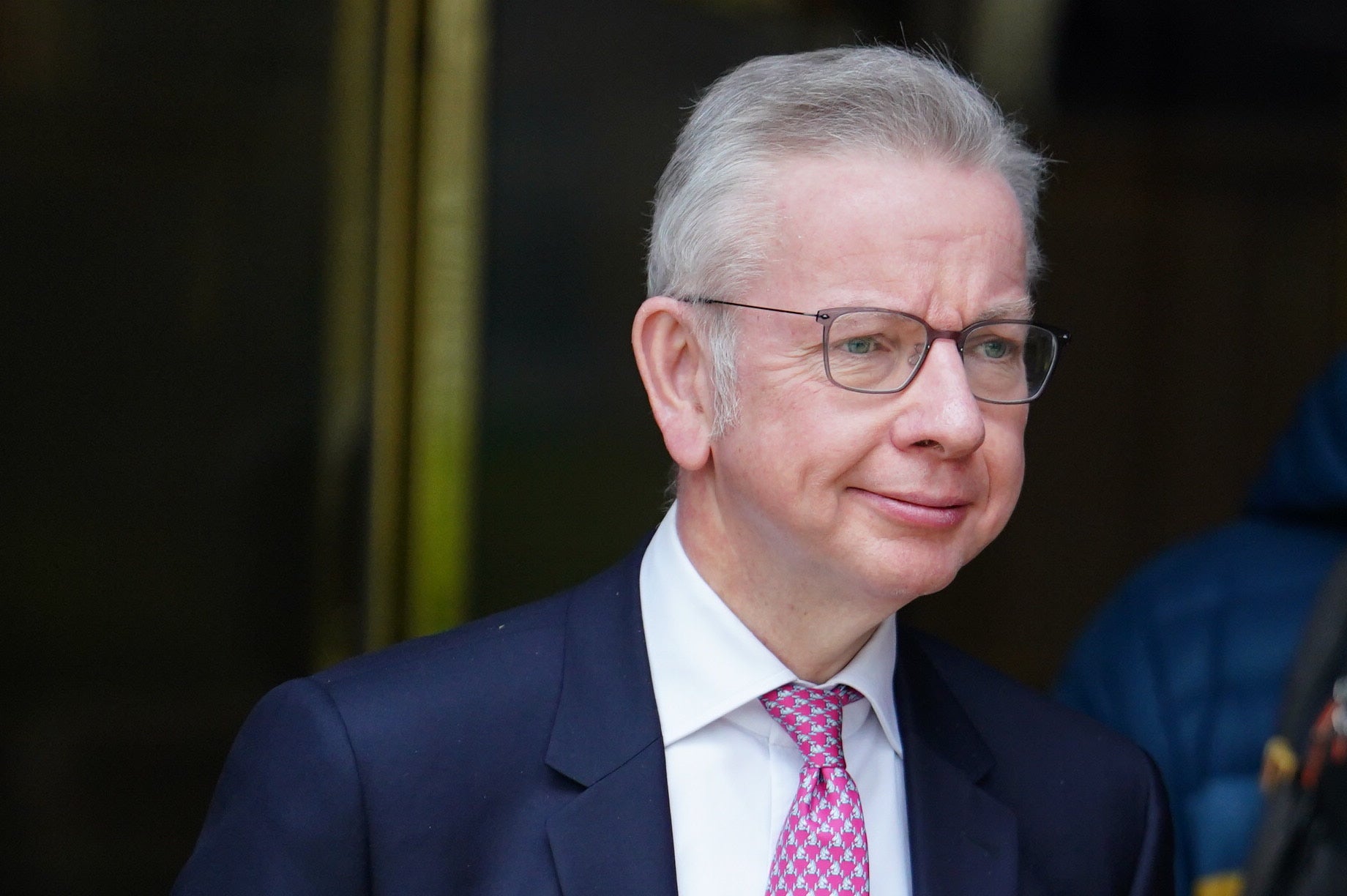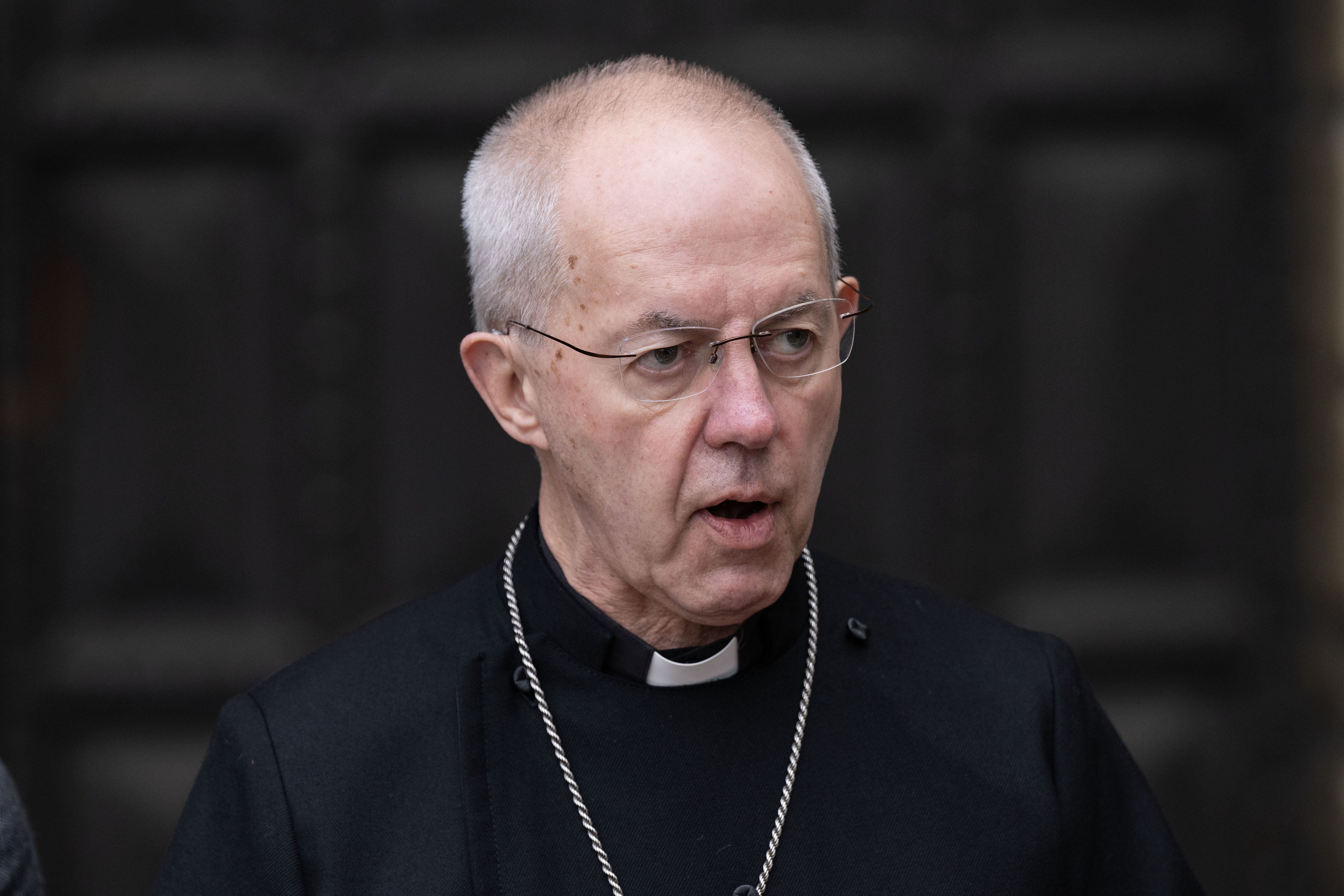Michael Gove names groups under consideration for ‘extremism’ ban
The communities secretary announced that the Muslim Association of Britain, CAGE, Patriotic Alternative and the British National Socialist Movement will be considered under new restrictions
Your support helps us to tell the story
From reproductive rights to climate change to Big Tech, The Independent is on the ground when the story is developing. Whether it's investigating the financials of Elon Musk's pro-Trump PAC or producing our latest documentary, 'The A Word', which shines a light on the American women fighting for reproductive rights, we know how important it is to parse out the facts from the messaging.
At such a critical moment in US history, we need reporters on the ground. Your donation allows us to keep sending journalists to speak to both sides of the story.
The Independent is trusted by Americans across the entire political spectrum. And unlike many other quality news outlets, we choose not to lock Americans out of our reporting and analysis with paywalls. We believe quality journalism should be available to everyone, paid for by those who can afford it.
Your support makes all the difference.Michael Gove has been accused of a “chilling” attempt to crack down on free speech after he unveiled a controversial new definition of extremism.
The communities secretary also named a string of organisations that could be barred from government funding and meetings under the reform.
He insisted the change was necessary to tackle the “pervasiveness of extremist ideologies” that have “become increasingly clear” in the aftermath of the 7 October Hamas attack.
But London mayor Sadiq Khan told The Independent the proposals “risk seriously undermining the fight against hatred and intolerance”.
He urged ministers to seek “calm, not inflame tensions” and “unite, not divide”.
He said: “Of course, robust action should be taken against groups that espouse hate and break the law. But if faith and campaign groups engaging in legitimate and legal activity feel like they could be the next target of ministers, you risk ostracising moderate voices and alienating the very people who are key to defeating extremism, including in their communities.”
Tory peer Sayeeda Warsi also hit out at the new definition as “authoritarian” and asked if that is what it takes to protect freedoms “have we actually lost the battle?”
And Tory MP Miriam Cates warned of the risk of criminalising “or at least chilling the speech of very legitimate harmless views”.
The communities secretary used his announcement on Thursday to namecheck five groups, including three Muslim organisations, which he said would be investigated over extremism fears.
Any blacklisted groups will be barred from funding and prevented from meeting ministers and civil servants under the plans. But Mr Gove insisted the reform will not impact those “exercising their proper right to free speech”, including gender critical campaigners, those with conservative religious beliefs, trans activists or environmental protest groups.
The groups he named were:
Follow our live politics coverage here
Mr Gove told the Commons that three of the groups “give rise to concern for their Islamist orientation and views” and the government would assess them to see if they meet the new definition.
He described The British National Socialist Movement and Patriotic Alternative as neo-Nazi groups.
But the communities secretary was forced to defend his controversial plans amid claims the policy threatens the “fabric of a civilised society”.

Former Home Office minister Kit Malthouse MP said he “shared some alarm” with fellow members as he raised fears that there was no right to appeal for a group on the list.
Robert Jenrick, another former Tory minister, said that the new definition is “in no man’s land”, neither being strong enough to tackle true extremists nor protect contrarian views.
Sir Edward Leigh told Mr Gove that he was “worried” about the plans and that “people have the right to criticise religious people or particular religions”.
Even before it was unveiled the plan came under fire from three former home secretaries and Justin Welby, the Archbishop of Canterbury, who said that the plans risk “disproportionately targeting Muslim communities” and threaten the “right to worship and peaceful protest – things that have been hard won and form the fabric of a civilised society”.
But, Mr Gove said: “It’s not intended to prevent people demonstrating per se, absolutely not.
“It’s not a restraint on free speech. It applies only to engagement with government, because we know that there’ve been cases in the past where individual extremist organisations have sought to take advantage of government patronage, money and influence in order to advance their agenda.”
Mr Gove insisted groups would only be deemed extremist after “a patient assessment of the evidence” and if they showed “a consistent pattern of behaviour”.
MEND has been accused of being a front for Islamic extremism after a review of the government’s counter-extremism programme found the group had “a well-established track record of working alongside extremists” and of “seeking to undermine the state’s considerable efforts to tackle all hate crime”.

Earlier this month Rishi Sunak warned the UK risked descending into “mob rule”, adding that the police must take urgent action or risk losing public confidence. At the time the prime minister pledged to do “whatever it requires to protect our democracy”.
Under the new definition, extremism is now defined as “the promotion or advancement of an ideology based on violence, hatred or intolerance” that aims to “negate or destroy the fundamental rights and freedoms of others” or “undermine, overturn or replace the UK’s system of liberal parliamentary democracy and democratic rights”.
The government also says the new definition of extremism will “clearly articulate” how it is “evidenced” through the public behaviour of extremists.
If implemented, the new measures would see the named groups barred from engaging with ministers and government officials, while individuals who are part of the groups will be banned from receiving honours or public appointments.
Government officials insist that the new definition sets a “high bar” that will only capture the most concerning activities.
The government published the extremism definition on Thursday and civil servants will now spend the next few weeks deciding which groups fit the criteria.
Mr Gove said an expert team of civil servants advised by academics would carry out a “very rigorous process of due diligence” to decide whether a group was extremist or not, with the final sign-off from either the home secretary James Cleverly or Mr Gove himself.
CAGE International, Palestine Action and Black Lives Matter UK have called for the “abolition of the authoritarian and repressive infrastructure of laws built on the back of counter-terror and counter-extremism powers”.
In a joint statement, they said Mr Gove’s announcement is a “continuation of the decades-long strategy aimed at inciting and exploiting fears against Muslims to build an authoritarian and repressive infrastructure that suppresses any dissent that is not licensed by Whitehall” and said they will “explore all avenues, including legal, to challenge the government’s deep dive into authoritarianism”.
The Muslim Association of Britain has said it “strongly condemns” the government’s announcement, calling it “an egregious assault on civil liberties and a blatant effort to stifle dissenting voices under the guise of countering extremism”.

Join our commenting forum
Join thought-provoking conversations, follow other Independent readers and see their replies
Comments